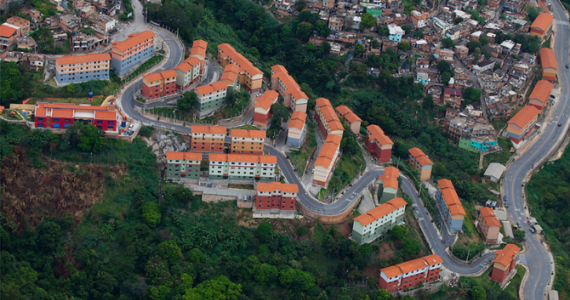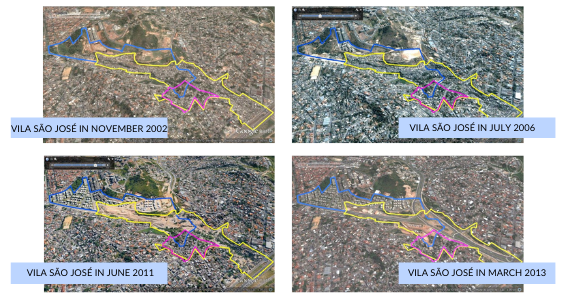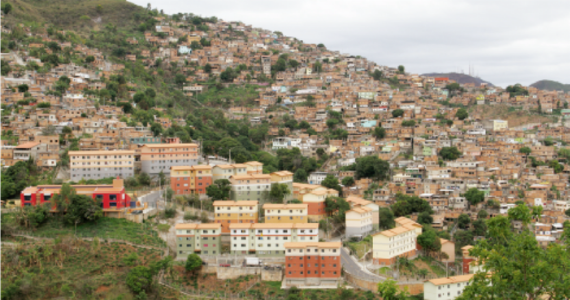Vila Viva - Belo Horizonte, Brazil
Health Impact Evaluation of Vila Viva Project in Belo Horizonte, Brazil
Health in the informal settlements of Belo Horizonte, Brazil
In many low- and middle-income countries, rapid urbanization over past decades has resulted in the growth of informal settlements or “slums.” Several urban redevelopment initiatives have focused on improving living conditions in these informal settlements through interventions that include housing and infrastructure improvements, enhancements to public spaces and built environments, and social programs and community engagement.

Source: Nitro
Although these interventions focus on housing and economic conditions, they may also have direct or indirect impacts on health and wellbeing. Despite the expansion of these programs, their health and environmental impacts have been infrequently documented.
The Vila Viva Program has implemented a variety of interventions in informal settlements in the city of Belo Horizonte, Brazil, including improvements in sanitation, housing conditions, neighborhood streets, and the provision of leisure and recreational spaces and resources. The program has also included initiatives to enhance the quality of life for community members in other ways, including economic empowerment through microfinance, and by establishing legal ownership over property by providing land titles.

Source: Google Map/Google Earth and BH Viva study works’ geo-referencing

The SALURBAL Study
A team of researchers from the Observatory for Urban Health in Belo Horizonte at the Federal University of Minas Gerais has been evaluating the health impact of Vila Viva in several informal settlements in Belo Horizonte since 2012, through the BH-Viva Research Project, a multiphase and multimethod supported by multiple funds. The third phase of this evaluation project, funded by SALURBAL, began in 2018.
The study is designed to evaluate Vila Viva’s impact on deaths, asthma, mosquito-borne disease, and risk factors related to non-communicable diseases. Health data on mortality and morbidity from the Unified Health System (SUS) as well as information about the interventions are being georeferenced and compiled in a data warehouse.
This project will provide evidence of how Vila Viva and other similar interventions might affect health and wellbeing. This evidence can then guide the design and implementation of similar future interventions to maximize their positive impact on community residents.
Study Timeline

Download a full timeline here.
Partnerships and Collaborators
Researchers are working in close collaboration with the Urbanization and Housing Company of Belo Horizonte (URBEL), the organization implementing the Vila Viva program. Data collection would not be possible without the generous cooperation and participation of residents of the Serra slum and Cabana slum of Belo Horizonte.